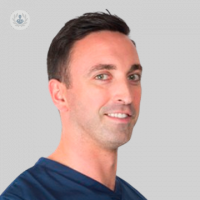FAQs about preventative medicine
Autore:In this article here, renowned private GP, Dr Rory McKeown, talks to us about preventative medicine, including the various fundamental aspects of this branch of medicine.

What is preventative medicine?
Preventative medicine focuses on measures taken to prevent diseases, rather than treating them after they occur. It is an approach that emphasizes the importance of proactive health management, primarily through lifestyle changes that can significantly improve overall health and well-being. Understanding and adopting these changes can reduce the risk of chronic illnesses and enhance quality of life.
What are the main aspects of preventative medicine?
One of the fundamental aspects of preventative medicine is maintaining a healthy diet. Consuming a balanced diet rich in fruits, vegetables, whole grains, lean proteins, and healthy fats provides the body with essential nutrients needed for optimal function. Avoiding processed foods, excessive sugar, and unhealthy fats can prevent conditions like obesity, diabetes, and heart disease. Hydration is equally crucial, as water is essential for numerous bodily functions, including digestion, nutrient transport, and temperature regulation.
Regular physical activity is another cornerstone of preventative medicine. Engaging in at least 150 minutes of moderate aerobic exercise or 75 minutes of vigorous exercise per week helps maintain a healthy weight, strengthens the cardiovascular system, and improves muscle and bone health. Exercise also boosts mental health by reducing stress, anxiety, and depression, while enhancing mood and cognitive function.
How important is an adequate amount of sleep when it comes to preventing illness?
Adequate sleep is vital for overall health. Poor sleep can lead to various health issues, including obesity, cardiovascular disease, and impaired immune function. Adults should aim for between seven to nine hours of quality sleep per night. Establishing a consistent sleep schedule, creating a restful environment, and avoiding stimulants like caffeine and electronics before bedtime can promote better sleep hygiene.
Stress management also plays a critical role in preventive medicine. Chronic stress can negatively impact physical and mental health, leading to conditions such as hypertension, depression, and weakened immune response. Techniques such as mindfulness meditation, yoga, deep breathing exercises, and regular physical activity can effectively reduce stress levels. Additionally, fostering social connections and engaging in hobbies can provide emotional support and a sense of fulfilment.
Regular health screenings and check-ups are essential components of preventative medicine. These assessments can detect potential health issues early, allowing for timely interventions. Vaccinations, cancer screenings, blood pressure checks, and cholesterol tests are some of the preventive measures that can identify and mitigate health risks.


